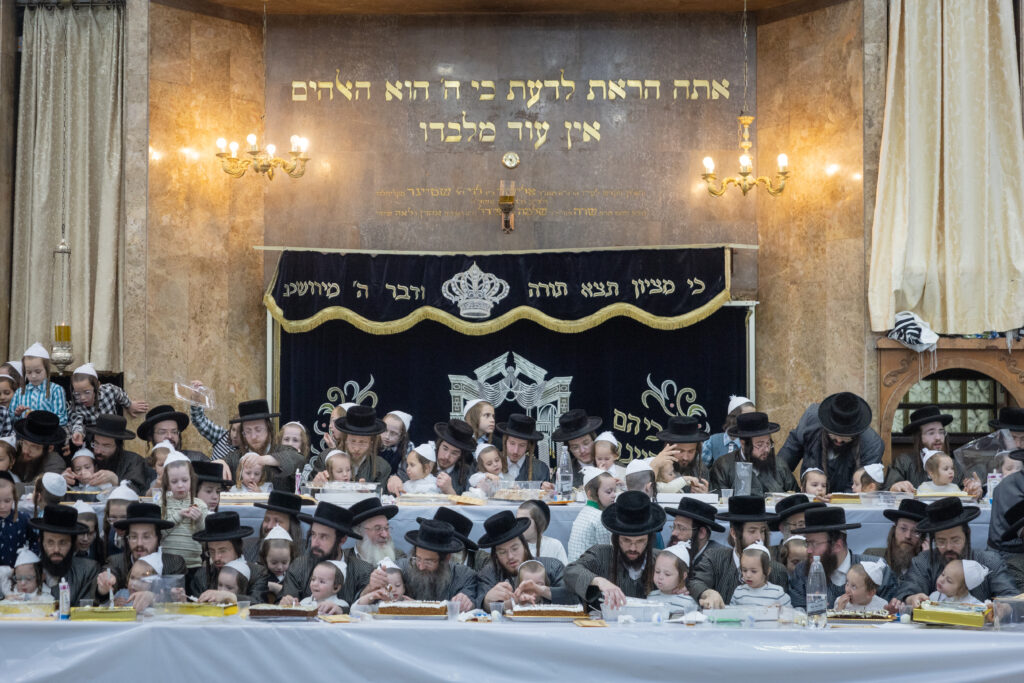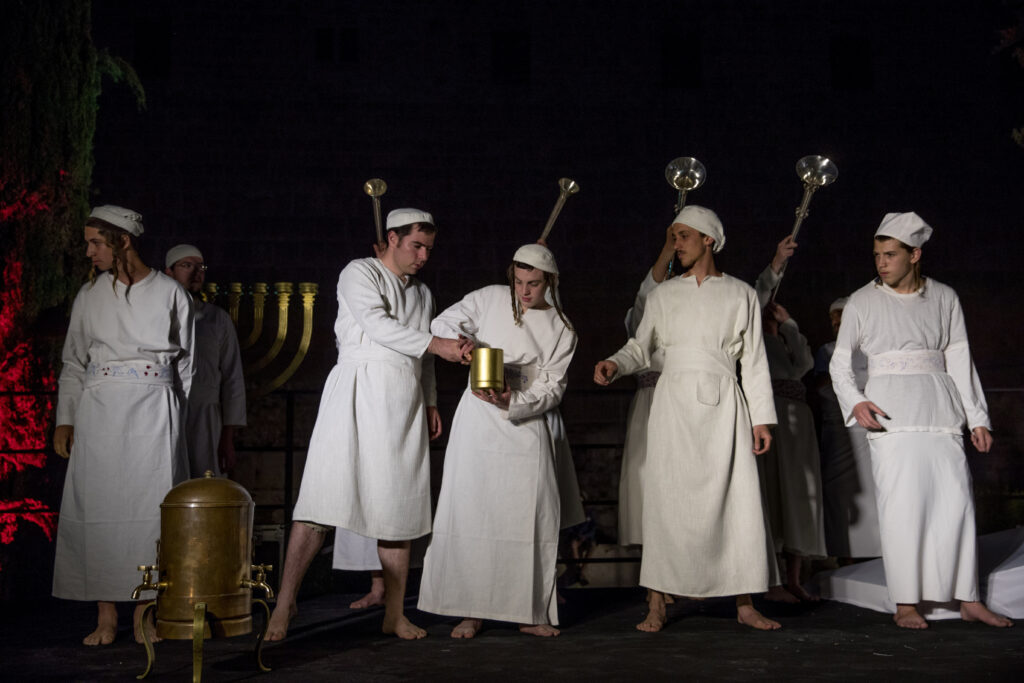In a remarkable development that highlights the complex relationship between religious belief and political ideology within Orthodox Judaism, the Toldos Aharon chassidic movement has established a specialized study program for Jewish priests (kohanim) to prepare for Temple service, despite the group’s well-known anti-Zionist stance.
Toldos Aharon represents one of the most insular and conservative streams within Haredi Judaism. The chassidic group is characterized by its extreme conservatism and fervent opposition to Zionism, typically rejecting the legitimacy of the modern State of Israel and maintaining strict separation from Israeli society and institutions.
This ideological position makes their recent initiative all the more striking. Under the leadership of the Toldos Aharon Rebbe, Rav Dovid Kohn—himself a kohen—the movement has launched a kollel (study program) exclusively dedicated to learning the intricate laws governing Temple service.
The Rebbe’s decision stems from his belief that current world events signal the approaching arrival of the Moshiach (Messiah). “We clearly see that we’re at the time of Ikvesa d’Meshicha (the final stage of redemption) and the third Beis Hamikdash (Temple) will be built soon in our days,” the Rebbe recently declared, using the Hebrew term for the “footsteps of the Messiah.”

His reasoning reflects a practical theological concern: “What will the Moshiach think when he appears to redeem Am Yisrael and he won’t have a team of Kohanim ready for their service in the Beis Hamikdash?”
The program operates from 4:40 a.m. to 7:00 a.m., with participants receiving a monthly stipend of $500 to study the complex laws of Temple service until the arrival of the Messiah.
The Paradox of Anti-Zionist Temple Preparation
This initiative presents a fascinating paradox within Orthodox Jewish thought. While Toldos Aharon categorically rejects Zionism and the current State of Israel, they are actively preparing for the rebuilding of the Temple in Jerusalem—the very city that serves as Israel’s capital.
This apparent contradiction reflects a fundamental theological distinction within anti-Zionist Haredi thought: they oppose human efforts to establish Jewish sovereignty before the arrival of the Messiah, but they simultaneously prepare for the divine restoration that they believe will come through messianic intervention, not human political action.
Toldos Aharon’s kollel is not an isolated phenomenon. Several other organizations have launched similar initiatives in recent years, though typically from pro-Zionist or neutral perspectives:
The Temple Institute, founded in 1987, established both a school for kohanim in 2016 and a registry of qualified priests four months earlier. Their program requires participants to have clear priestly lineage, be born and raised in Israel, and maintain the laws of ritual purity incumbent upon priests.
Additionally, the Kehuna Academy, launched five years ago by Rabbis Amichai Cohen and Peretz Rivkin, offers online education for kohanim preparing for Temple service. This initiative echoes historical precedent: until his death in 1933, the renowned Rabbi Yisrael Meir HaKohen Kagan (the Chofetz Chaim) oversaw a similar learning program in Poland.

Modern science has provided remarkable validation for the preservation of the priestly lineage. Over 98% of Jewish men who identify as kohanim share a specific genetic marker, providing scientific evidence for the integrity of the patrilineal priestly heritage that has been maintained over nearly 2,000 years since the destruction of the Second Temple.
This genetic continuity, combined with the careful preservation of priestly genealogies within Jewish communities, has led to speculation that modern kohanim could indeed serve in a rebuilt Temple, despite the nearly two-millennium gap in practical Temple service.
The Toldos Aharon initiative raises profound questions about the intersection of religious preparation and political ideology within Judaism. While the group maintains its opposition to the current State of Israel, their active preparation for Temple service suggests a complex theological framework that distinguishes between human political endeavors and divine messianic fulfillment.
This development may signal a shift in how some anti-Zionist groups approach the question of Jewish sovereignty and Temple restoration, maintaining their political opposition while simultaneously preparing for what they view as inevitable divine intervention.
The establishment of this kollel represents more than just religious study—it embodies the enduring tension between messianic hope and political reality that continues to shape Orthodox Jewish thought in the modern era.




